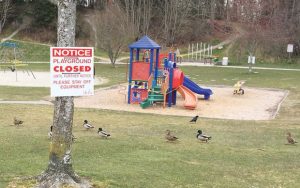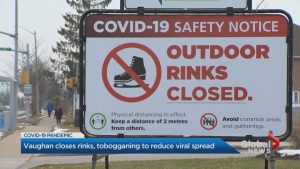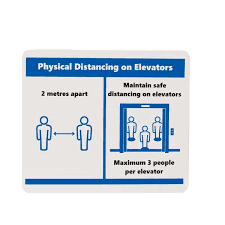 February 2021
February 2021
Closure of multi-family housing common areas, social activities and programming is a short-sighted reaction to COVID making our response worse than the disease. Yet closures have been a common theme throughout the pandemic, frequently without consideration of impact.
Retirement homes and long-term care facilities have recognized the failure of this approach. They have learned that closing off common areas and social activities cause problems worse than the disease. Their sustainable approach is to find ways to safely maintain social interaction without closing common areas and cancelling social activities.
Canadian Society
 Government closed down much of our economy costing many their livelihood, and creating a level of debt that will cost all of us for a decade or longer, without a clear impact on controlling the spread of COVID. By way of comparison, the influenza pandemic more than 100 years ago and the more recent polio pandemic, both far more devastating, never impacted lifestyle and ability to earn income as dramatically as today’s government-mandated restrictions.
Government closed down much of our economy costing many their livelihood, and creating a level of debt that will cost all of us for a decade or longer, without a clear impact on controlling the spread of COVID. By way of comparison, the influenza pandemic more than 100 years ago and the more recent polio pandemic, both far more devastating, never impacted lifestyle and ability to earn income as dramatically as today’s government-mandated restrictions.
 Politicians, faced with hard decisions and limited evidence, chose to shut society in the hope of saving lives. The considerable costs of closing down society, which include inability to earn income, isolation, hunger and mental or physical illness, don’t appear to have been considered.
Politicians, faced with hard decisions and limited evidence, chose to shut society in the hope of saving lives. The considerable costs of closing down society, which include inability to earn income, isolation, hunger and mental or physical illness, don’t appear to have been considered.
One hopes our condo boards act more responsibly and with more thought.
Community Living
Some communities keep common areas open and maintain social activities while remaining in compliance with government directives. Others have chosen to expand on government’s more extreme approach with indefinite suspension of access to common areas, amenities and social activities. They have implemented draconian and nonsensical restrictions on package acceptance or elevator access.
High-rise and condominium communities can apply the retirement home approach to multi-family living by figuring out how to operate during COVID while complying with government-mandated restrictions. This allows residents to safely enjoy their home for however long COVID remains a concern rather than turning that home into a prison.
 Elevators
Elevators
- Encourage residents to use stairs when going up one floor or down two floors to reduce demand for elevators.
- Shorten elevator booking periods, except for move ins and move outs, so all elevators remain in regular service as much as possible.
- Have residents reserve elevators for extended periods using condo management software to minimize direct contact at concierge desk or management office.
- Individuals uncomfortable with sharing an elevator with others should be encouraged to plan their travels during off-peak hours.
Exercise Rooms
- Rearrange equipment to facilitate physical distancing. If necessary, “close off” certain equipment to ensure distancing is maintained while exercising.
- Restrict room access to a maximum number of concurrent users. This can be achieved by requiring residents to book their time and any equipment they want to use.
- Consider plastic barriers between spaces or equipment to facilitate distancing.
- Provide disinfectant spray or wipes for those wishing to use them.
- Ensure ventilation is fully operational and providing sufficient fresh air to space.
- Treat each piece of equipment and exercise space as a separate amenity in your condo management software. Create a separate amenity for the room. Residents can go online to reserve their space in the room and on equipment. Require anyone in the space to have made an online reservation.
Lounges, Card Rooms, Reading Spaces and Study Areas
- Rearrange chairs and tables to facilitate physical distancing.
- Provide disinfectant spray or wipes for those wishing to use them.
- Treat each seating area as a separate amenity in your condo management software. Residents can go online to reserve their space. Require anyone in the space to have made an online reservation.
Condo boards can provide leadership by finding ways to keep spaces open and safe throughout COVID and ongoing.







